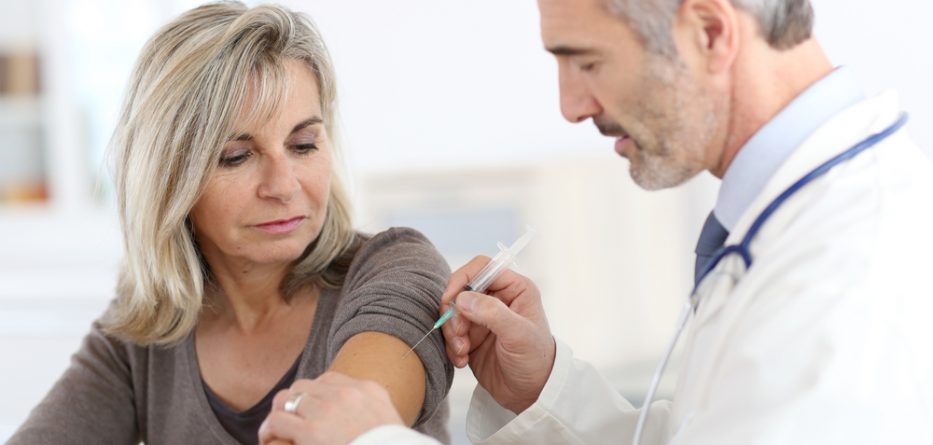The pneumonia shot (injection) is one of the leading methods of preventing the spread of pneumonia. It is also known as the pneumonia vaccine or pneumococcal vaccination, and it comes in two types.
Pneumococcal Conjugate Vaccine (PCV13 / 13)
- PCV13 protects against 13 different types of pneumonia bacteria.
- PCV13 is generally given to young children in a series of multiple doses to provide effective protection against pneumonia in later life. The shot is administered either 3 or 4 times: first at 2 months old, then 4, then 6 (depending on certain health conditions) and again at around 12 to 15 months of age, according to the Centers for Disease Control and Prevention (CDC).
- People between the ages of 2 and 64 can receive PCV 13 depending on health conditions (click here for more), as well as adults aged 65 or over.
Pneumococcal Polysaccharide Vaccine (PPSV23 / Pneumovax23)
- PPSV23 now protects against 23 different types of pneumonia bacteria, according to Immunize.org.
- Although not administered to children under the age of 2, it is generally given to adults over the age of 65.
- PPSV23 can also be given to any person between the ages of 19 and 64 who have a number of specific conditions (click here for more), requirements or habits including smoking, alcoholism, heart disease, liver disease and many more.
Vaccine side-effects
Common side-effects of vaccines are usually mild. Among children, drowsiness, swelling around the point of injection and mood irritability are generally reported. Among adults, similar symptoms are reported as well as mild fever, headache and muscle pain.
In rare cases, allergic reactions to the vaccine may occur. These can be serious and may require emergency medical treatment.
A full list of vaccine side-effects can be read by clicking here.
What is pneumonia?
Pneumonia is an infection of the lungs. Although commonly bacterial, it can also be viral or even fungal. It most commonly occurs in young children, but it can be caught by anyone. In elderly people particularly, pneumonia can cause significant health risks and complications that can sometimes lead to death. Symptoms may include coughing (which may produce phlegm), chest pain, fatigue, fever, nausea, shortness of breath and confusion (among the elderly). Find out more about pneumonia by clicking here.
Featured image: Depositphotos / Goodluz
Posted on May 5, 2023



